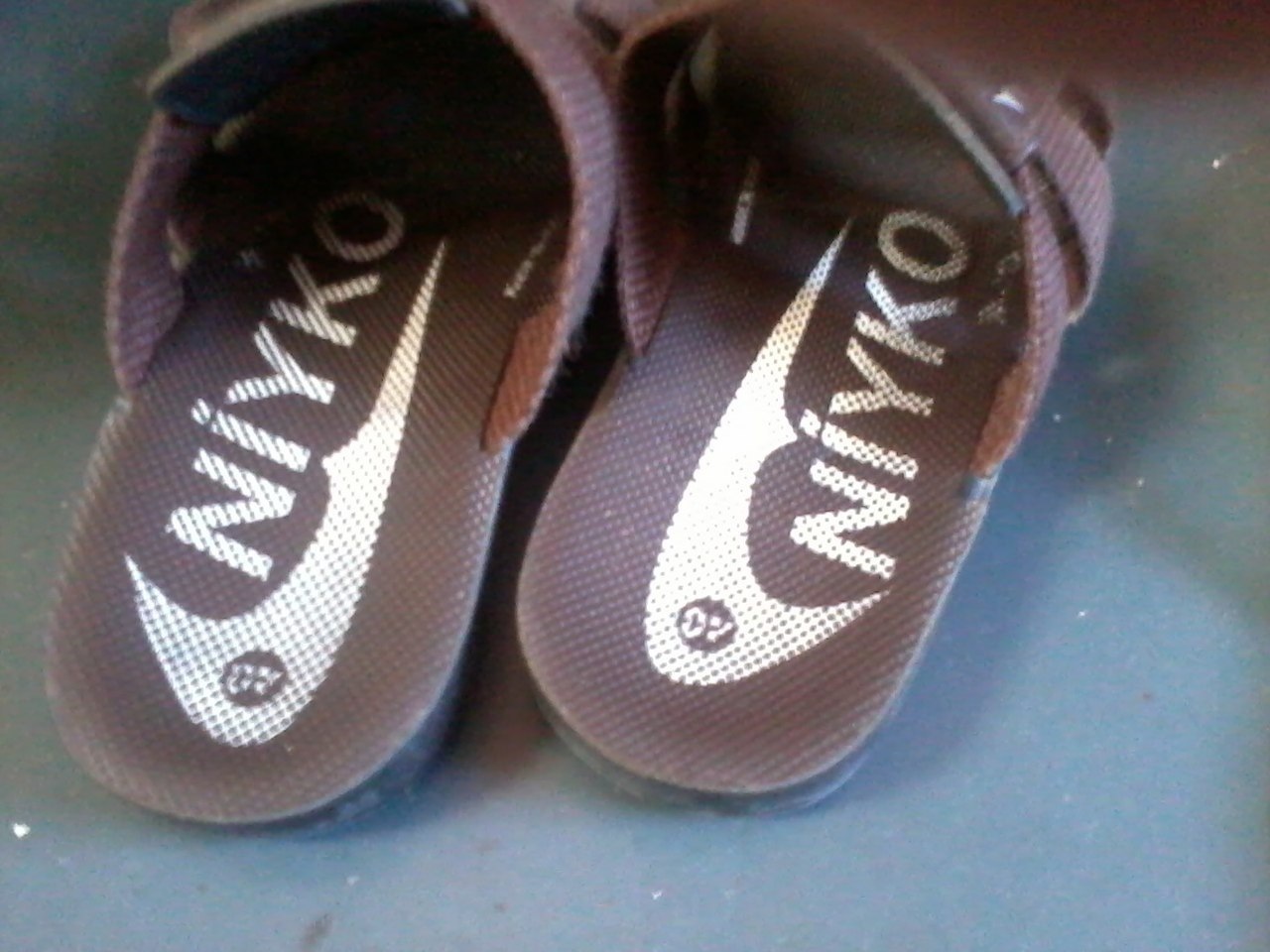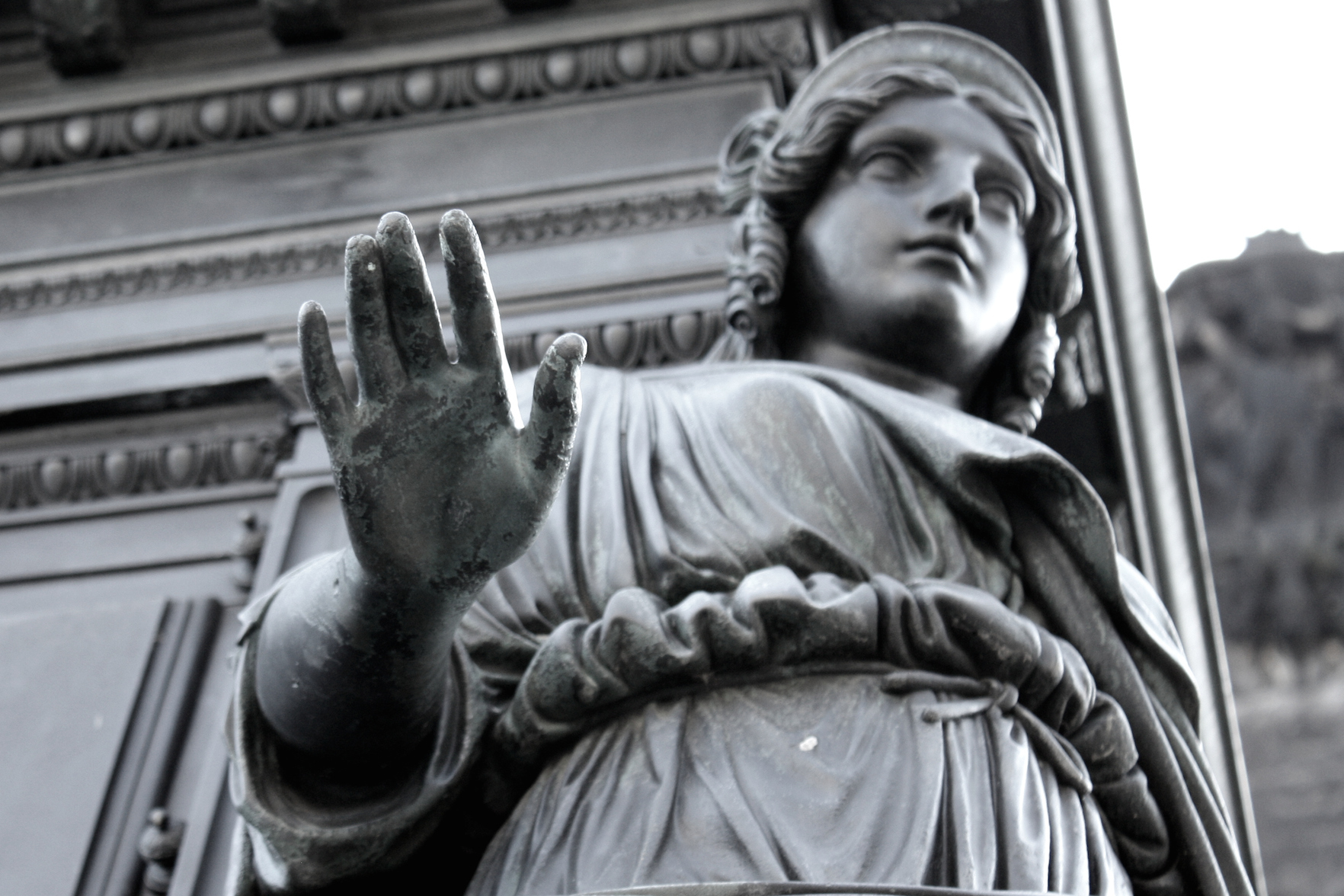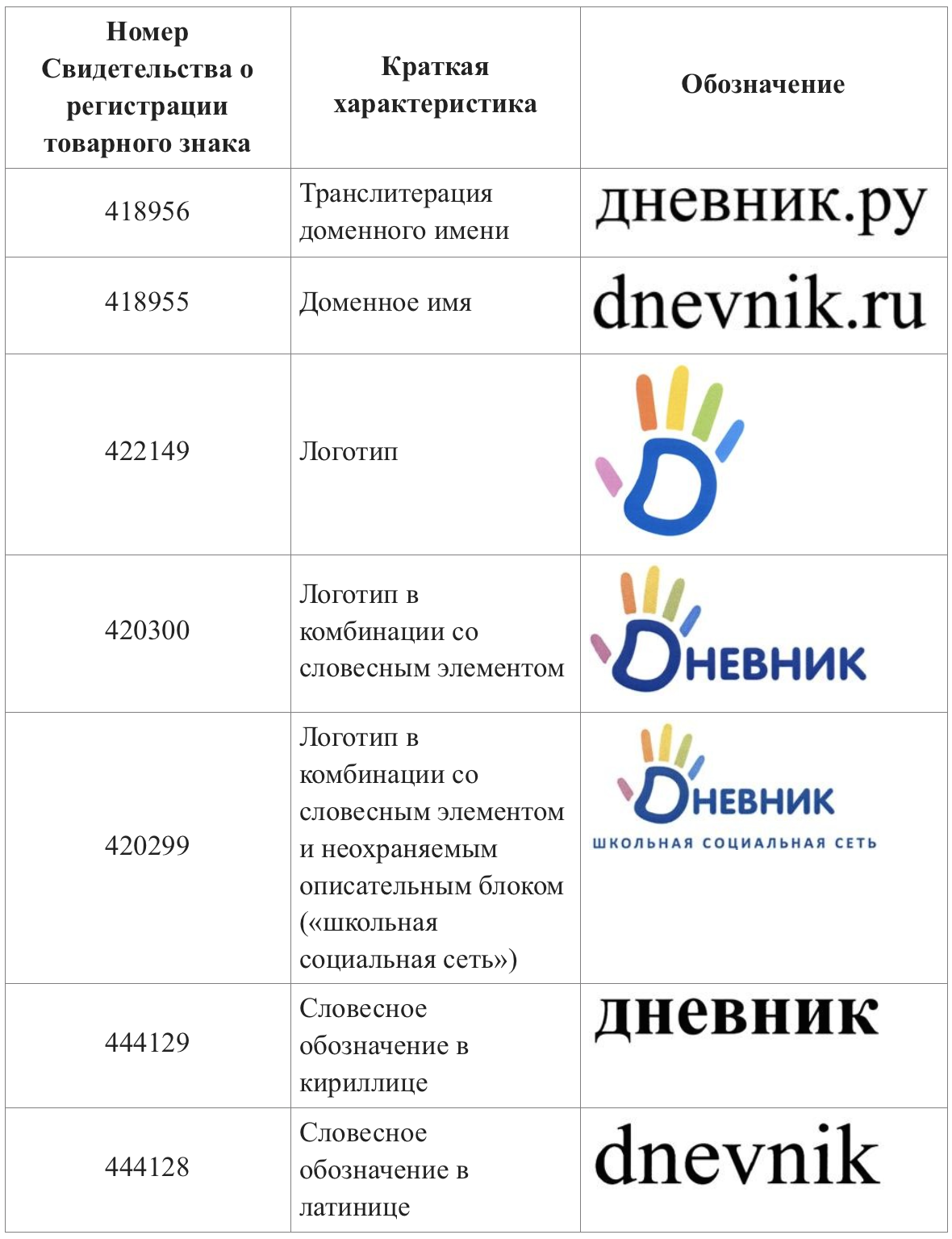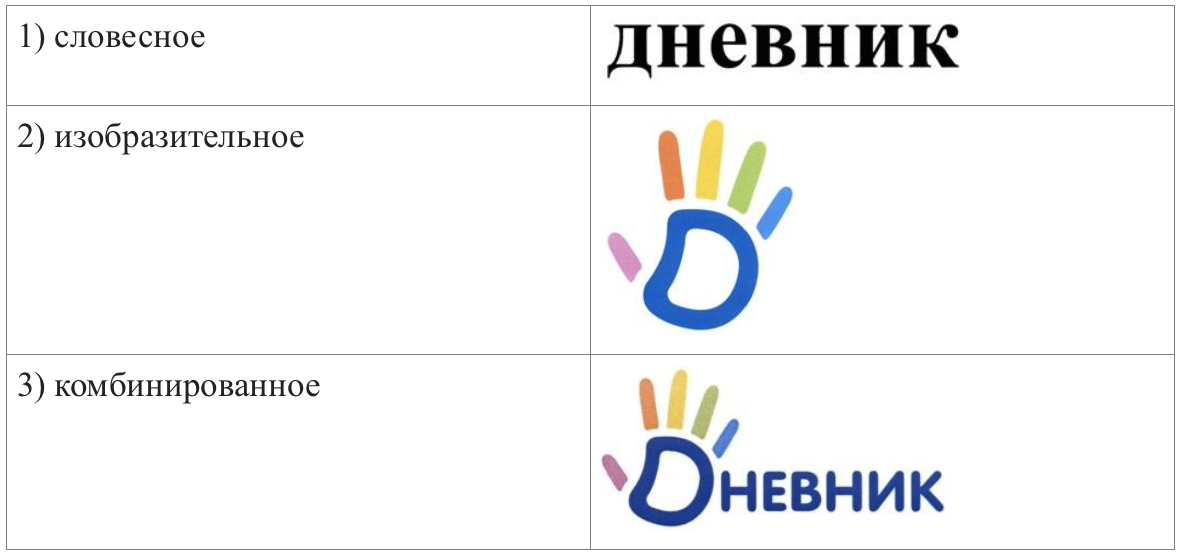Meet me in court: Why do startups need trademarks?

Everyone who is interested in the topic of technology and Internet business development has repeatedly heard stories about the wars of companies with “patent trolls”, battles with cybersquatters for the return of important domain names and other unpleasant things for any organization.
To prepare our topic today, we invited experts from the Online Patent project to help them consider the importance of trademark registration and list the main ways of protecting their intellectual rights that startups can resort to.
What is a trademark?
Article 1477, part 1 of the Civil Code of the Russian Federation offers the following definition of the concept of “trademark”:
Trademark - a designation used to individualize goods of legal entities or individual entrepreneurs.
There is also an important concept of a “service mark” (Civil Code of the Russian Federation, part 2 of article 1477):
Service mark - a designation used to individualize the work performed by legal entities or individual entrepreneurs or the services provided by them.
There are verbal, graphic, combined and voluminous trademarks. In addition, trademarks of other categories are acceptable (although rarely found in the real world):
- sound (growling lion Metro Goldwyn Mayer)
- olfactory (the smell of grass in Senta tennis balls)
- only from flowers (red Ferrari color)
With the concept itself, everything has become clearer, but why are trademarks needed? And in particular, why do startups need them?
Why trademarks are needed
Contrary to popular belief, trademarks are registered not only in order to protect competitors from copying products and business solutions. Despite the fact that in the event of a conflict related to such violations, the fact of registration of a trademark will help in legal proceedings, according to the law it will be possible to bring to court only those “copycats” that the copyright holder discovers himself - neither the FAS nor Rospatent are required to do this and they won’t.
The second reason for registering a trademark is to avoid the risk of becoming a violator of other people's intellectual rights - if a company creates a product that has analogues, it is likely that its competitors could register their own trademark - this could lead to the fact that the young startup team not wanting to violate other people's exclusive rights by using, say, a packaging design or name similar to the degree of confusion with a competing product (for example, LOUIS RUITTON and LOUIS VUITTON).
All this can lead to claims and fines - in accordance with Art. 1515 of the Civil Code of the Russian Federation, compensation to the copyright holder in such cases can reach up to 5 million rubles (rarely what startup can afford such expenses).
In addition to all of the above, trademark registration is not only a means of defense or attack, but also a means of generating profit from the legitimate sale of an intangible asset of a company. This includes commercial concession agreements, license agreements, various forms of agreements with dealers or retailers. Without protecting a trademark, you do not have the opportunity to legally correctly exercise your rights to it.
Cafe and geolocation social network with photosharing: what is the difference?
There are a number of reasons why the registration of a trademark is more important for a technology-based Internet startup than for companies conducting a more traditional business.
Growth problems
If a conditional cafe existing in a single copy in a certain area can be called whatever you like (in Moscow or in different cities of the Moscow region there can be many Flamingo cafes owned by different owners), then a startup planning to expand throughout Russia and abroad will surely come across with rightholders of similar goods, both at home and at the global level.
And these are only conscientious competitors, and there are so-called trademark squatters (an analogue of patent trolls or cybersquatters for the trademark sphere). It is important to understand that in many countries (including, for example, Russia and China), when determining the right to register a trademark, the “first to file” principle is used and the fact of using the designation in commercial circulation is not taken into account. Even large companies do not always succeed in proving their case in disputes with trademark squatters, and the resulting legal costs are simply not comparable with startup budgets.
Lean startup easy to copy
As a rule, startups at the first stage of their existence test put forward market hypotheses and test a minimally functional version of a product. In such circumstances, competitors can very easily copy the project idea, choose a similar name and create a similar design.
There may be an unpleasant situation in which a startup team creates a name for a company that is initially defenseless for copying by virtue of its wording - for example, if it is formulated as descriptive for a given business, consists of obviously unprotected elements (for example, contains the name of a famous character, the name of a literary works or a well-known element - “.ru”, “www”, etc.). In this case, even a trial will not always help.
Domain Protection
Domain names in Russian law are not recognized by means of individualization. In practice, this means that:
- no one has ever checked a domain name before sale for similarity (or identity) with trademarks registered in the Russian Federation (or marks valid in the Russian Federation on the basis of international agreements);
- the legal owner of a registered trademark at any time may demand to stop using a domain name that is identical or confusingly similar to its trademark with respect to homogeneous goods / services;
- actions to register a domain name can be recognized as an act of unfair competition, and a claim for compensation for illegal use of a trademark may be presented to the administrator of the domain name.
Compensation for such violations may be not very large (Resolution of the Ninth Arbitration Court of Appeal No. 09AP-4173/2009-GK of April 13, 2009 in case No. A40-42348 / 08-15-353, domain "avtovaz.ru", compensation of 10 thousand rubles.), and very significant, reaching up to millions of rubles (Resolution of the Fifth Arbitration Court of Appeal No. 05AP-6335/2011 of 10.19.2011 in case No. A51-5935 / 2011, domain "onegagipertonik.ru" , compensation 5 million rubles.).

Obviously, protecting a domain name is important for technology companies, because it can not only be a means of promotion (as in an offline business like a bakery), but also an object without which direct company activities are impossible.
It is hardly necessary to explain why reliable legal protection of a domain name is important for a web service: after all, if you are engaged in the production of equipment or confectionery, the site is your means of promoting the company, for a startup, the site is the main source of income. It should be noted that the number of cases on the cancellation of registration of domain names is increasing annually by at least 30%.
How to register a trademark
A logo was invented, the name was approved, it would seem that everything is ready to start the registration procedure. The first question that arises at this stage is what, in fact, will we register? Logo? Name of service? Both together? And the name - will we register in Russian or English? Is it possible to somehow register the sign immediately in 3-5 options? And what to do with the domain?
In the general case, a company wishing to register a trademark must go through several stages - either literally (by visiting the relevant departments), or - which will be closer to the readers - virtually through the Online Patent website .
Choice of designation for registration
A trademark is protected in the form in which it was registered and does not accept the concept of “options”. That is why it is necessary to apply for registration exactly the designation that you will use most often. Otherwise, subsequently, you may well encounter unscrupulous attempts to annul the trademark registration certificate you received.
In practice, one trademark is obviously insufficient to ensure full protection of the rights of the company. As one example of a serious approach to legal protection of individualization tools among Runet IT services, dnevnik.ru, which owns seven trademarks at once, can be cited:

It is important to understand that the legal protection of a trademark is provided in relation to pre-selected goods and services classified in accordance with the International Classification of Goods and Services (IKTU). It contains 45 classes describing groups of goods (classes 1-34) and services (classes 35-45). Thus, it is possible to simultaneously register similar trademarks of companies operating in different areas of the business.
ICTU Class Definition
Having decided on the designation to be registered, the next step is to choose those goods and services that will be provided by the company and which need to be protected. You can use the WIPO Product and Service Manager or the TMClass search system for this.
The choice of designation and classes of the IKTU are two main steps that are necessary for the formation of an application for registration of a trademark. Actually, after it is already quite possible to contact Rospatent (the application form can be found here ), however, this approach carries certain risks.
Firstly, the application has not yet been checked for the inability of the trademark (for example, the word “Taxi” for class 39 services), in addition, the trademark you choose may be confused to the already registered trademark (register the Audi trademark 12 class IKTU for obvious reasons will not work). After 1-1.5 years of examination at Rospatent, few will want to be refused for such “stupid” reasons (and wasting money on duties).
The second risk - the application should be checked for violation of the legitimate rights and interests of third parties. By submitting an application to Rospatent and continuing to use the mark, without conducting such verification, the company cannot be completely sure that the similar designation does not belong to another organization. In this case, a situation may arise when a startup spends money on advertising and brand promotion (essentially someone else’s), and then its true owner will sue and demand compensation. Therefore, it is also necessary to take up the examination of your application for registration of a trademark.
Check
The verification of the application does not guarantee its successful satisfaction in the future. Firstly, there is a delay in the publication of application documents of Rospatent, which takes place approximately two weeks from the moment they are received by the Office. In other words, the company cannot receive information about applications submitted at this time, and among them there may be signs similar to the degree of confusion, and they will take precedence by virtue of an earlier application.
In addition, there are territorial restrictions on the search for similar applications. Russia is a party to the Madrid Agreement and the Protocol - this means that if a trademark was registered in a conditional Germany in the period up to 6 months, then after a similar registration in Russia, a German company can expand to Russia and try to take away the rights for itself (the likelihood of such a development of events, however, extremely small).
Also, no one canceled the subjectivity of the application in Rospatent - and the concepts of “degree of confusion” and “misleading the consumer” leave room for different interpretations. (Whether it is misleading to use English letters in the logo, buyers may get the impression that the company is foreign).
Based on the results of the audit, you get a report containing conclusions about the eligibility of the claimed designation. As a rule, in the case of a negative answer about the prospects of registration, the document will also contain recommendations for addressing the weaknesses of the application. However, after making such changes, the verification must be carried out again, since the changes can provoke the emergence of new legal risks that should be taken into account. If the answer is yes, then the company can, with a clear conscience, apply to Rospatent.
Application Review
It takes 10-14 months on average to consider a trademark application, and there is simply no way to speed up this process.
The first stage of the examination is a formal examination, which lasts 1 month. During this period, the contents of the application submitted for examination are checked, the presence of all necessary documents, as well as their compliance with the established requirements, is confirmed. Based on the results of the formal examination, the application is accepted for consideration or a decision is made to refuse to accept it for consideration.
Suppose you received a Notice of Acceptance. This means that your application has moved to the next stage of the examination and now the eligibility of the designation you declared for registration will be checked. It is based on the results of this stage of the examination that, in fact, a decision is made to register a trademark or to refuse to register it.
In the ideal case, according to the results of the examination, a decision is made on the registration of a trademark, and you just have to get a Certificate on registration of a trademark by paying the corresponding fee. If the events do not develop so well, then the applicant may first be given a “preliminary refusal” - a notice of the results of checking the compliance of the claimed designation with the established eligibility requirements. Having received such a refusal, the applicant, within six months from the date of its receipt, may prepare and send to the Patent Office a reasoned response containing substantive arguments of the objections of the examination.
If, however, the arguments of the reasoned answer do not convince the examination of the eligibility of the claimed designation, then the application will nevertheless make a decision to refuse to register the trademark. Objections to this decision may be filed with the Chamber for Patent Disputes within three months from the date of its receipt.
How much does it all cost
The Online Patent says that registering a trademark is objectively not the cheapest event. Preparation and filing of an application for registration of a trademark for one class of MKTU through a patent attorney will cost 5-7 thousand rubles. All fees for consideration of the application by Rospatent will be at least 30 thousand rubles.
The price of preliminary verification of an application before submission to the agency may be different. To a large extent, it depends on what type of designation you are applying for registration. The most common are three types of designations (we will use Diary.ru as an example to illustrate them earlier):

The preparation of answers to the “preliminary refusals” of Rospatent also costs 15-20 thousand rubles, but in some cases, for example, if a specialized sociological survey is necessary, the total cost of the work can reach 150-200 thousand rubles.
That's all for today, in our next article of the “legal” series we will talk about the procedure for filing an international application for registration of a trademark and its specifics in the most popular countries of registration.
